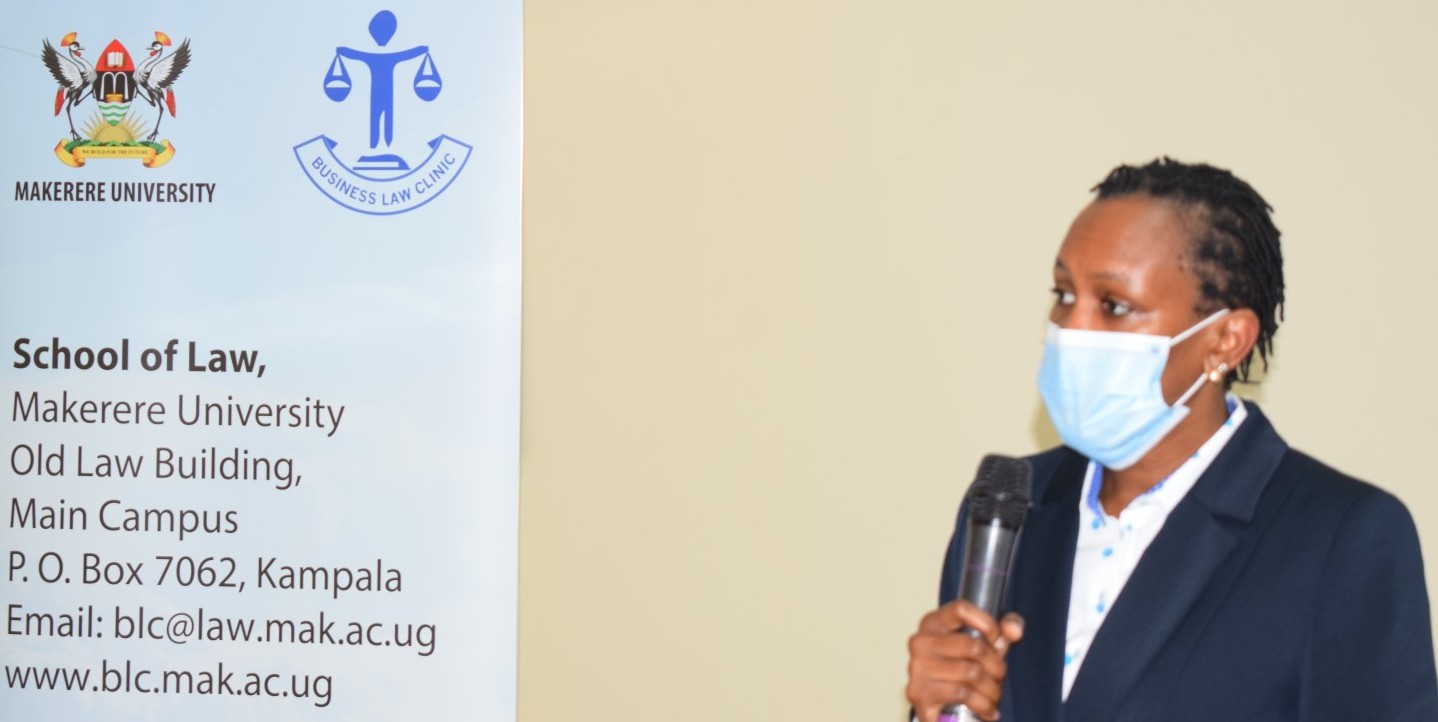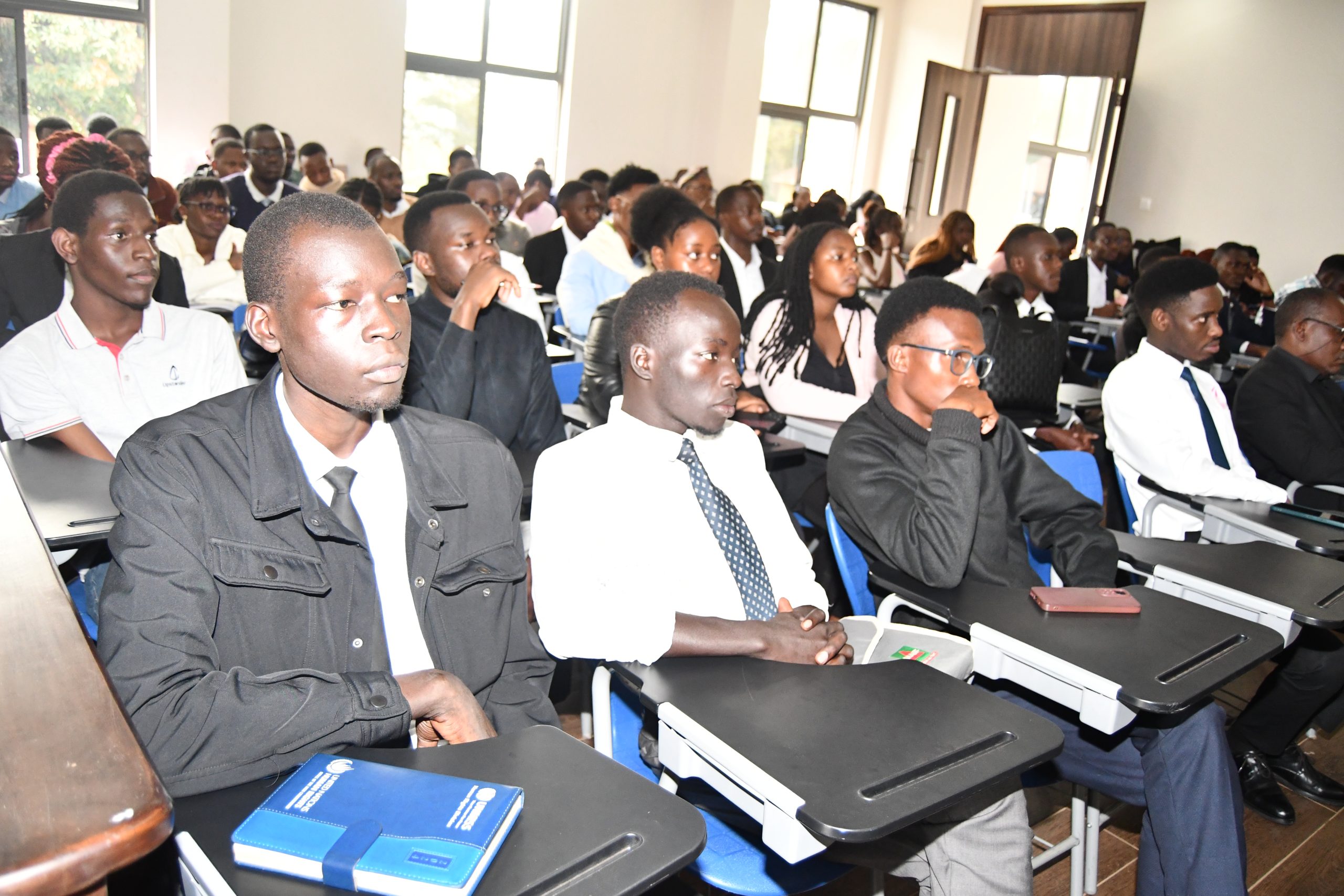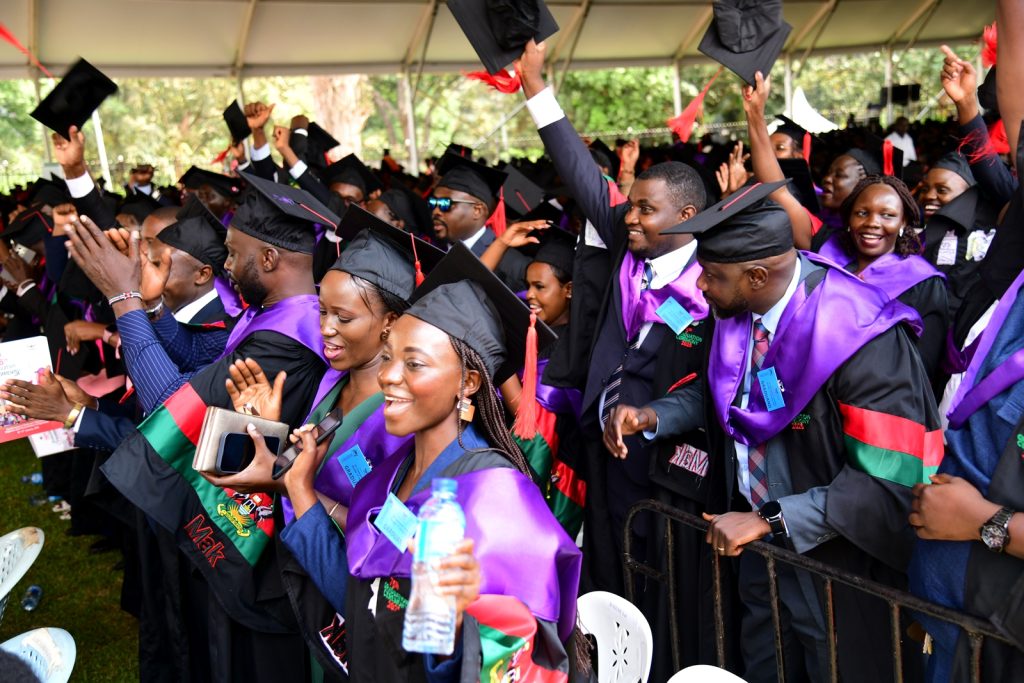Transactional Law Research Report Launched
The Department of Commercial Law of the School of Law Makerere University has launched the report of the Pilot Transactional Law Clinic, following a successful completion of the one-year research project in Transactional/Business Law.
The launch held on December 8th 2020 at Fairway Hotel saw the presentation of the major outputs of the project that included The Clinical Manual, The Student’s Reflective Journal and the Client Satisfaction survey reports. The reports gave an depth analysis of the processes, activities, and lessons learned in the course of the project.
The project that was supported by the Government of Uganda through the Makerere University Research and Innovations Fund (Mak-RIF I) was initiated in September 2019 and during this period the Clinic engaged in various activities involving academicians from Schools of Law in Uganda, Law Students and the community seeking legal advisory services for their small businesses.
In her remarks the Principal Investigator Dr. Phiona Muhwezi- Mpanga said the seminar was intended to disseminate the findings, and to share experiences and best practices in using clinical methods of learning in teaching commercial law subjects in Universities in Uganda. She said the dissemination seminar was one of the last activities of the pilot Transactional Law Clinic which was characterised by varied learning experiences whereby the learners led the learning process and took charge of their learning.
The project set out to use clinical training methodologies of instruction to train law students in corporate and commercial law areas as well as to provide commercial legal services to small business start-ups, the indigent, vulnerable entrepreneurs and other disadvantaged groups and in so doing contribute to the sustainable social economic development of Uganda.
The representative of the RIF management Ms. Grace Ruto commended the work done by the project under the stewardship of the Principal Investigator, Dr. Mpanga. She said the results of the study were promising and that they would continue impacting the country through the skills and networks gained by the law students on the program. She committed further funding for the next phase of the project and urged the researchers to take note of all the lessons learnt in order to make more impact on the people of Uganda.
She recommended the publication and sharing of lessons learnt in the process of implementing the project with law teaching institutions and other stakeholders. She pledged continues support by the Research fund.
The key findings of the project were that the 12 pioneer students were provided practical learning exposures through the clinical activities such as business registration. It was also indicated that the students learned through the provision of pro bono services, were readily available, flexible and highly responsive to the needs of the clients.
In their reflective journal, the students reported having realised positive experiences and meeting their expectations. They affirmed that the clinic realised its objectives. Students were trained in social justice areas that included employment law, intellectual property law, incorporating companies and NGO registration. They also benefited from the practical exposures in emerging laws, and the intersection between legal justice and technology as well as career guidance, legal drafting, client interviewing, public presentations, and team work.
The Transactional /Business Law Clinic operates as a professional law office in the service of clients and provides services and advice that include; Business formation, Contract review and negotiation, Community legal empowerment, Intellectual property, Nonprofit formation, Law and policy audits and other transactional legal services.



